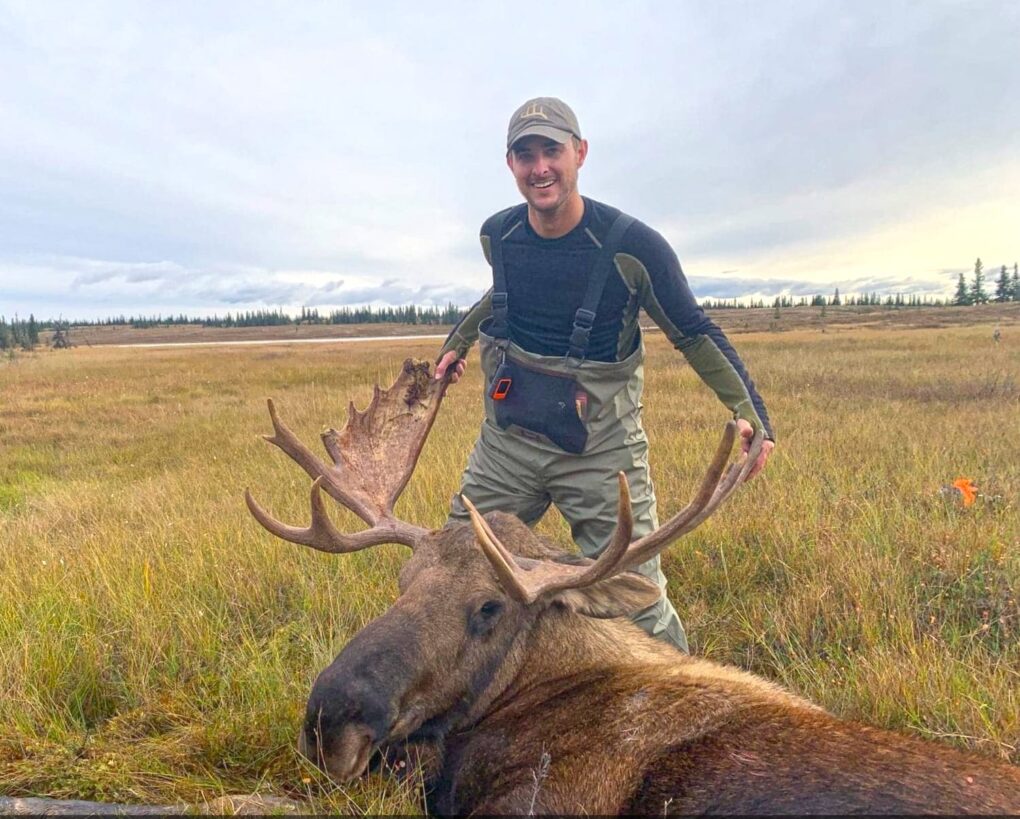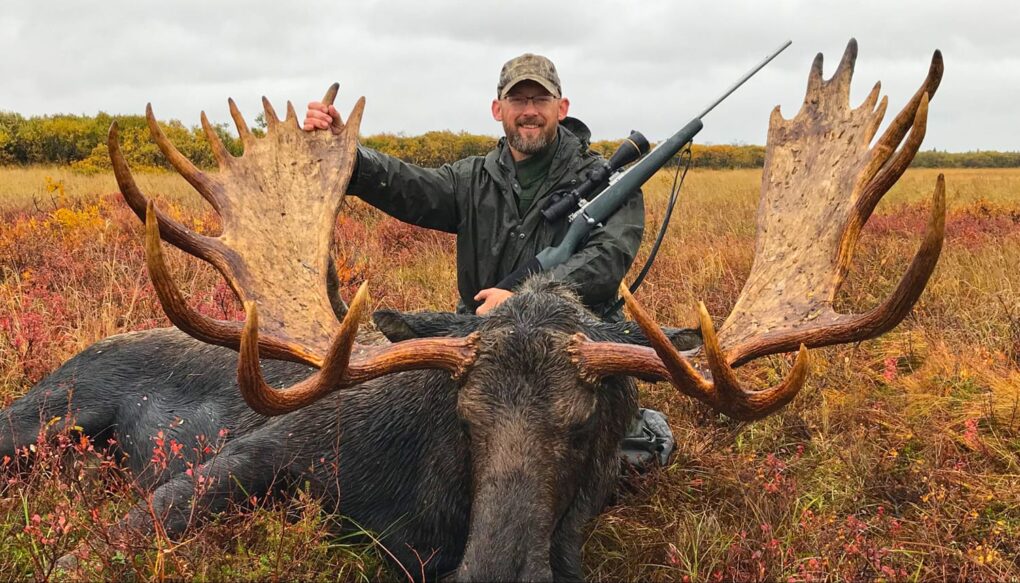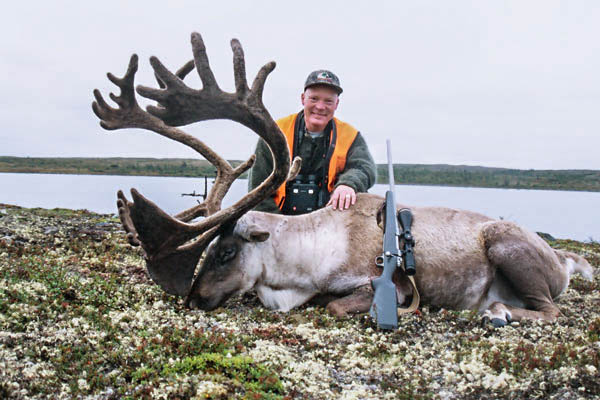Moose hunting in Quebec Canada offers thrilling opportunities for hunters seeking a challenging adventure. With vast wilderness areas and abundant moose populations, Quebec is a prime destination for hunting enthusiasts looking to test their skills and enjoy the beauty of the Canadian landscape.
The province’s diverse terrain and strict hunting regulations ensure a sustainable and ethical hunting experience for all participants. Whether you are a seasoned hunter or a beginner looking to try your hand at moose hunting, Quebec provides a unique opportunity to connect with nature and engage in a traditional outdoor pursuit.
In this guide, we will explore the ins and outs of moose hunting in Quebec, including regulations, best practices, and essential tips for a successful hunting trip.
The Appeal Of Moose Hunting
Abundance Of Moose Population
Hunting in Quebec, Canada offers an immersive experience due to the abundance of moose population in the region.
Thrilling Wilderness Experience
Exploring the wilderness of Quebec while moose hunting provides a thrilling and memorable adventure.

Credit: outdoors-international.com
Planning Your Quebec Moose Hunt
Quebec, Canada offers an exciting opportunity for a memorable moose hunting adventure. Before embarking on your journey, it is essential to plan meticulously to make the most of your trip. This starts with choosing the right outfitter and understanding hunting regulations in Quebec.
Choosing The Right Outfitter
- Research reputable outfitters with a proven track record in Quebec moose hunting.
- Check reviews and testimonials from previous hunters to gauge the outfitter’s credibility.
- Ensure the outfitter provides experienced guides, comfortable accommodations, and necessary gear.
Understanding Hunting Regulations
- Familiarize yourself with Quebec’s hunting season dates, bag limits, and license requirements.
- Comply with all safety regulations and know the designated hunting zones in Quebec.
- Stay informed about any recent changes or updates to hunting laws and regulations.
By carefully selecting the right outfitter and adhering to hunting regulations, you can set the stage for a successful and memorable moose hunting experience in Quebec.
Essential Gear For Moose Hunting
As you prepare for your upcoming moose hunting trip in Quebec, Canada, it’s essential to have the right gear to ensure a successful and safe hunting experience. Having the appropriate firearms and ammunition as well as field dressing equipment is crucial for a successful moose hunt in the rugged terrains of Quebec.
Firearms And Ammunition
When it comes to moose hunting, choosing the right firearm and ammunition is critical. Opt for a sturdy, high-caliber rifle such as a .30-06 or .300 Winchester Magnum. These rifles provide the necessary power and accuracy to take down a moose at a distance while ensuring a humane kill. Additionally, make sure to select ammunition designed specifically for large game hunting, such as soft-point or bonded bullets, which can effectively penetrate thick hides and heavy bone structures.
Field Dressing Equipment
Field dressing equipment plays a vital role in preserving the quality of the moose meat and ensuring safe handling in the wilderness. Essential gear includes a sharp hunting knife, bone saw, game bags, and a reliable tarp or plastic sheeting to keep the meat clean and free from contaminants. A portable, lightweight game cart or sled can also be advantageous for transporting the harvested moose through rough terrain.
Tracking And Locating Moose
Are you a passionate hunter seeking the ultimate challenge? Look no further than moose hunting in Quebec, Canada. Tracking and locating moose is an art in itself, requiring a deep understanding of moose behavior and the skill to utilize effective tracking techniques. In this article, we will delve into the fascinating world of moose hunting, focusing specifically on how to track and locate these majestic creatures in the wilderness of Quebec.
Understanding Moose Behavior
Moose, the largest members of the deer family, are known for their majestic antlers and massive size. To successfully track and locate moose, it is vital to comprehend their behavior patterns. Moose typically inhabit dense forests and marshy areas, feeding on various plants and shrubs. They are most active during the early morning and late afternoon, minimizing their activity during midday. Understanding the basic behavioral tendencies of moose will provide crucial insights for tracking them down in their natural habitat.
Utilizing Tracking Techniques
Tracking moose requires a combination of sharp observation skills, familiarity with their natural habitat, and effective tracking techniques. Here are some tried and tested methods to enhance your chances of success:
- Look for Moose Signs: Keep an eye out for fresh moose tracks, droppings, and markings on trees. Moose tracks are distinctively large and heart-shaped, while their droppings resemble small, dark pellets.
- Listen for Vocalizations: Moose are known for their distinctive vocalizations, such as grunts, bellows, and moans. By listening carefully, you can estimate their proximity and gain valuable clues for tracking.
- Use Optics: Binoculars or a spotting scope can be invaluable tools to scan vast areas and locate moose feeding or moving. Look for any signs of movement or dark shapes against the natural backdrop.
- Follow Food Sources: Moose primarily feed on aquatic plants, grasses, and young leaves during summertime. By tracking their primary food sources, you increase your chances of encountering moose in their feeding grounds.
- Don’t Ignore Waterways: Moose are excellent swimmers and often seek refuge near water bodies. Keep an eye on lakes, ponds, and nearby streams, as moose may opt for these areas for accessibility to food and water.
By employing these tracking techniques, you will significantly elevate your chances of locating moose during your hunting expeditions in Quebec. Remember to always prioritize safety and adhere to hunting regulations for a responsible and enjoyable experience.
Harvesting And Preserving Moose Meat
Hunting moose in Quebec, Canada is an exhilarating experience for outdoor enthusiasts. Once you’ve successfully hunted a moose, it’s important to know how to harvest and preserve the meat properly. In this section, we will discuss ethical harvesting practices and effective meat preservation methods.
Ethical Harvesting Practices
When it comes to moose hunting, ethical practices are paramount. It’s crucial to ensure a humane and respectful harvest of the animal. Here are some ethical guidelines to follow:
- Use a skilled guide or mentor to assist you during the hunt.
- Take careful aim and use appropriate firearms or archery equipment for a quick and clean kill.
- Avoid causing unnecessary suffering to the moose by aiming for vital organs.
- Respect hunting regulations and obtain the necessary licenses and permits.
By adhering to these ethical practices, you contribute to the conservation of moose populations and maintain the integrity of the sport.
Effective Meat Preservation
Preserving moose meat is essential to ensure that it remains fresh and delicious for consumption. Here are some effective methods for meat preservation:
- Cold Storage: Moose meat should be stored at temperatures below 40°F (4°C) to prevent spoilage. Consider using a dedicated meat refrigerator if available.
- Freezing: One of the most common methods, freezing moose meat can help extend its shelf life for several months. Wrap the meat tightly in plastic wrap and aluminum foil to prevent freezer burn.
- Canning: Canning is another popular preservation method. Ensure that the meat is properly cooked and follow the canning instructions carefully to prevent the growth of bacteria.
- Jerky: Moose jerky is a delicious and convenient snack. Slice the meat into thin strips, season them with your preferred spices, and dehydrate the strips until they are fully dried.
Remember, proper handling and storage techniques are crucial to maintaining the quality and safety of the moose meat you’ve harvested. By following these preservation methods, you can savor the flavor of your moose meat for months to come.

Credit: outdoors-international.com

Credit: www.petersenshunting.com
Frequently Asked Questions For Moose Hunting In Quebec Canada
Can I Hunt Moose In Quebec Without A Guide?
Yes, it is mandatory to hire a licensed guide for moose hunting in Quebec. The guide ensures your safety and compliance with local hunting regulations, maximizing your chances of a successful hunt.
What Is The Best Time Of Year For Moose Hunting In Quebec?
The best time for moose hunting in Quebec is during the rutting season, which typically takes place in September and October. This is when moose are more active and responsive to calls, increasing your chances of a successful hunt.
What Is The Bag Limit For Moose Hunting In Quebec?
The bag limit for moose hunting in Quebec varies depending on the hunting zone and the type of permit you have. It is important to check the specific regulations for the area you plan to hunt in to ensure compliance.
What Are The Hunting Regulations For Non-residents In Quebec?
Non-residents who wish to hunt moose in Quebec must obtain a hunting license and hire a licensed guide. Additionally, they need to follow specific regulations relating to bag limits, hunting seasons, and firearm transportation while complying with all Canadian customs and immigration requirements.
Conclusion
Hunting moose in Quebec Canada offers a thrilling outdoor adventure. From its breathtaking landscapes to abundant wildlife, it’s a paradise for nature enthusiasts. Whether you’re a seasoned hunter or a novice, Quebec provides a unique experience. With its rich culture and hospitality, it’s a destination worth exploring.



